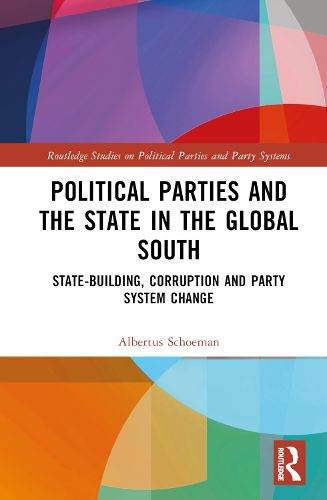Readings Newsletter
Become a Readings Member to make your shopping experience even easier.
Sign in or sign up for free!
You’re not far away from qualifying for FREE standard shipping within Australia
You’ve qualified for FREE standard shipping within Australia
The cart is loading…






This book introduces a new framework for understanding how the relationship between political parties and the state shapes the development of political parties, party systems and democratic consolidation.
Drawing on comparative case studies spanning the Indian subcontinent, Africa, and East and Southeast Asia, the book shows how the sequencing of state-building and the development of political institutions can blur distinctions between political parties and the state with long-term consequences for their respective development. This includes understanding the effects of authoritarian and colonial legacies on shaping this relationship and the nature of interparty competition with significant consequences for public sector corruption, political stability, and the formation and institutionalisation of party systems.
This book will be of key interest to scholars and students of democratic development, comparative politics, party politics and institutional development in the Global South.
$9.00 standard shipping within Australia
FREE standard shipping within Australia for orders over $100.00
Express & International shipping calculated at checkout
This book introduces a new framework for understanding how the relationship between political parties and the state shapes the development of political parties, party systems and democratic consolidation.
Drawing on comparative case studies spanning the Indian subcontinent, Africa, and East and Southeast Asia, the book shows how the sequencing of state-building and the development of political institutions can blur distinctions between political parties and the state with long-term consequences for their respective development. This includes understanding the effects of authoritarian and colonial legacies on shaping this relationship and the nature of interparty competition with significant consequences for public sector corruption, political stability, and the formation and institutionalisation of party systems.
This book will be of key interest to scholars and students of democratic development, comparative politics, party politics and institutional development in the Global South.